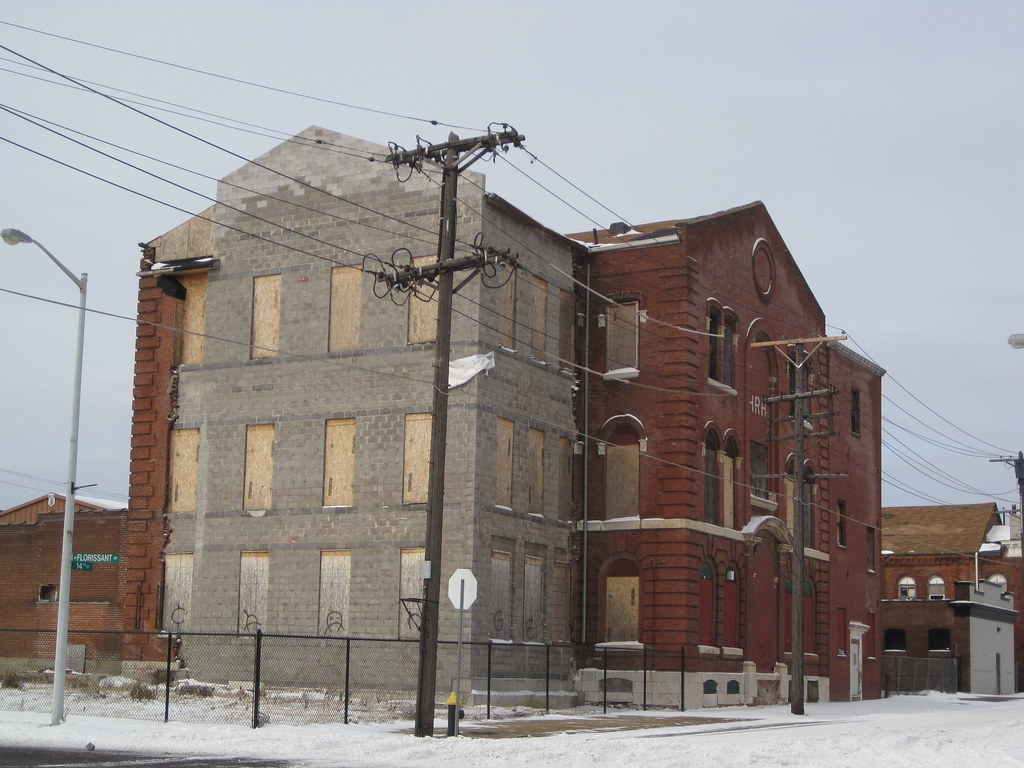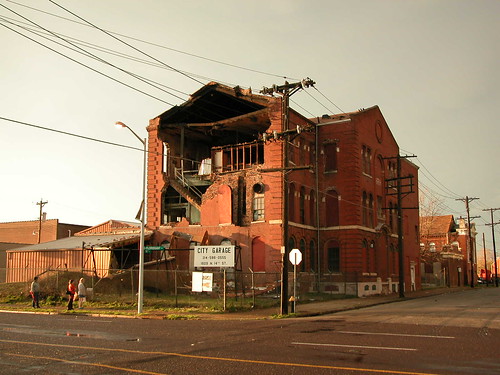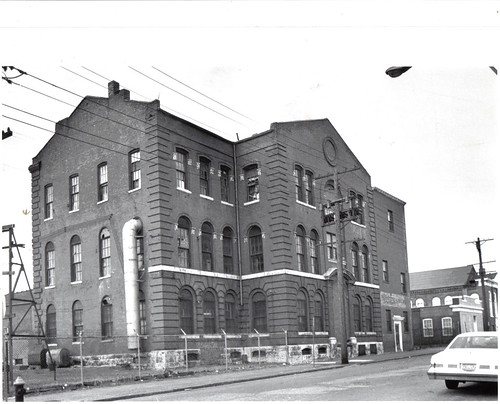by Michael R. Allen
 The fact that this city still has the Mullanphy Emigrant Home is testament to the amazing mobilization of dedicated Old North St. Louis residents, preservationists and civic leaders across the city. This week’s victory for Proposition A in St. Louis County brought much jubilation to advocates for sustainable urban development, and its close coincidence with the anniversaries of the dates that the venerable north side landmark was struck by storms crossed my mind.
The fact that this city still has the Mullanphy Emigrant Home is testament to the amazing mobilization of dedicated Old North St. Louis residents, preservationists and civic leaders across the city. This week’s victory for Proposition A in St. Louis County brought much jubilation to advocates for sustainable urban development, and its close coincidence with the anniversaries of the dates that the venerable north side landmark was struck by storms crossed my mind.
The tale of the Mullanphy Emigrant Home, located at 1609 N. 14th Street at the south end of Old North, is no less remarkable than the overwhelming passage of Proposition A. In the dark days after the storm wrecked the south wall in April 2006, many observers conceded its loss. The Building Division pushed for emergency demolition, the owner was not certain that he wanted to preserve it or even sell it and the neighborhood had so many other pressing needs that taking on a possible lost cause seemed unlikely. Yet residents of Old North rallied around the battered landmark, which defines the south entrance to the neighborhood and has great historic significance. While only used as a transitional home for westward-moving immigrants for ten years after its 1867 construction date, the Emigrant Home was pivotal in that period. Its Italianate masonry design, by celebrated architects George I. Barnett and Alfred Piquenard, is one of the city’s finest surviving 19th century examples of the style.
Cultural Resources Office Director Kathleen Shea helped fend off demolition to buy time. Swift mobilization of the Old North St. Louis Restoration Group allowed for a building sale. Then the hard part: raising money for stabilization and repair. Of course, things would get worse before getting better when a storm inflicted more damage almost one year later in 2007. Still, the preservation effort proceeded against daunting odds and with the generosity of E.M. Harris Construction Company and the Masonry Contractors Association, not to mention countless individual donors. Now, the building is effectively mothballed awaiting reuse as a hostel planned by the Hostelling International Gateway Council.
Here’s a look back at the building’s plight.
 On March 31, 2007, the Mullanphy Emigrant Home suffered a second collapse due to heavy winds. The south wall already had a gaping hole, but then the east side and north wall were also partly collapsed. Bracing installed after the first damage held the building together although the open southern end created a wind tunnel effect that probably caused the blow-out damage.
On March 31, 2007, the Mullanphy Emigrant Home suffered a second collapse due to heavy winds. The south wall already had a gaping hole, but then the east side and north wall were also partly collapsed. Bracing installed after the first damage held the building together although the open southern end created a wind tunnel effect that probably caused the blow-out damage.
 The building was already in rough shape following the south end collapse on April 2, 2006.
The building was already in rough shape following the south end collapse on April 2, 2006.
 From 1900 through the 1980s, the Absorene Company occupied the building and used it to manufacture wallpaper adhesives, cleaners and removers. Absorene altered the building considerable, adding the bump-out stairwell in 1927, removing the cupola and main entrance, and changing the original profile of the front gable. The photograph above was taken by Landmarks Association of St. Louis in 1982 as part of the documentation for the Mullanphy Historic District, a National Register of Historic Places district.
From 1900 through the 1980s, the Absorene Company occupied the building and used it to manufacture wallpaper adhesives, cleaners and removers. Absorene altered the building considerable, adding the bump-out stairwell in 1927, removing the cupola and main entrance, and changing the original profile of the front gable. The photograph above was taken by Landmarks Association of St. Louis in 1982 as part of the documentation for the Mullanphy Historic District, a National Register of Historic Places district.
 Artist Pat Baer’s drawing presents the original appearance of the Mullanphy Emigrant Home. The outpouring of civic good will and hard work that saved the building — twice, no less — will hopefully restore this appearance some day.
Artist Pat Baer’s drawing presents the original appearance of the Mullanphy Emigrant Home. The outpouring of civic good will and hard work that saved the building — twice, no less — will hopefully restore this appearance some day.

One reply on “Mullanphy Emigrant Home, Four Years Later”
Thanks for acknowledging the anniversary, Michael. As you mention, the saving of this irreplaceable landmark really is testament to the community's determination and the generosity of so many supporters. Old North St. Louis Restoration Group has invested more than $70,000 of its funds and continues to have holding & maintenance costs while exploring resources to make full redevelopment possible, so contributions are still welcome via the PayPal link at SaveMullanphy.org. (The SaveMullanphy website is woefully out of date, but we'll work on getting access to the codes for updating that soon).
Thanks again for your support, Michael – and for celebrating this preservation success story in the making.
-Sean